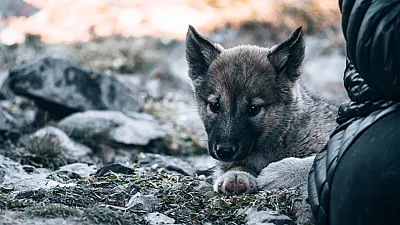Arctic Wolf Cloning Could Help Preserve Endangered Species
October 21, 2022

Scientists in China have cloned an arctic wolf. Some hope the process the scientists used could save wolves and other animal species from extinction.
Sinogene Biotechnology, a company based in Beijing, cloned the wolf in a lab. It announced the success after the wolf lived 100 days. The general manager of the company said it was the “first case of its kind in the world,” according to the Global Times, a Chinese state media outlet.
Cloning is a process scientists use to create copies of living things, including genes, cells, tissues, and animals. The Chinese scientists used a method called somatic cell nuclear transfer (SCNT). The process has been used before. The most famous SCNT cloning involved a sheep named Dolly. She was cloned in Scotland in 1996.
The cloned arctic wolf is named Maya. She's in good health, the Global Times said. During SCNT, scientists transfer the DNA from an animal’s somatic cell into an egg cell that has had its nucleus and DNA removed. This nucleus is then reworked to become fertilized. The egg develops into an embryo.
The embryo is then placed inside a host animal that carries it fully to term. In Maya’s case, the host animal was a beagle. Scientists made 137 embryos. 85 were transferred into seven beagles. Maya was the result of one of the transfer attempts.
Arctic wolves are also called “polar” or “white” wolves. They are not in peril. They are found in regions of North America and Greenland. However, other wolf species are endangered. There are fewer than 24 red wolves left. They live in the southeastern US.
Photo by Annie Spratt courtesy of Unsplash.





